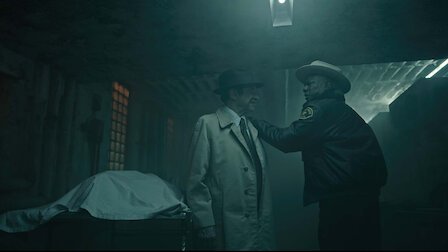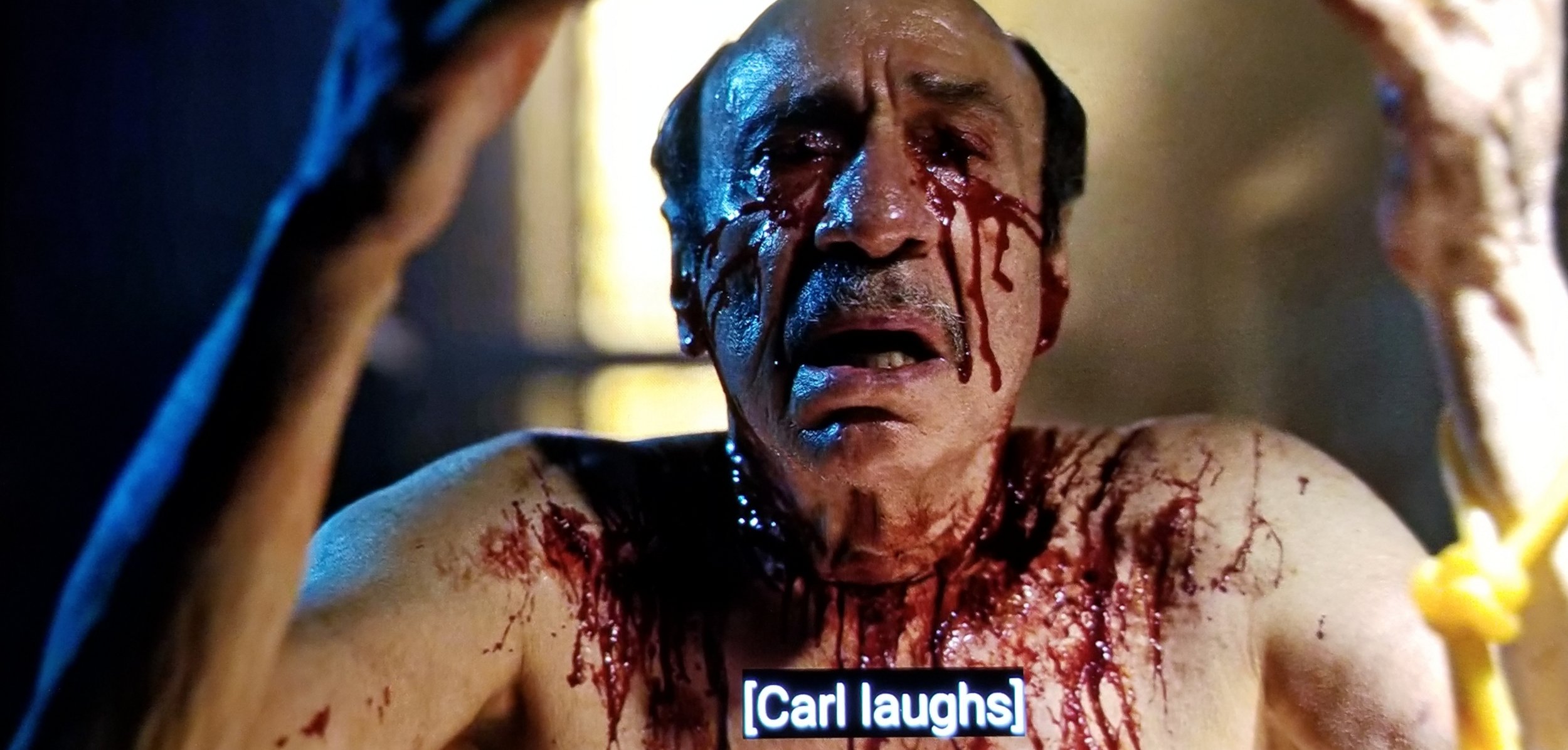The notions that those who hold power or authority or who are chosen by some version of divine right, blood, entity, or position in a hegemonic system, are the ones who need to save us is far too common of a narrative that doesn't really empower us. The power of “The Autopsy is then two fold; A. It lends power to the idea that heroism is in the hands of the common man as well. That we can all fight and win and scrap and thrive, even while being honest about the cost. B. It brings catharsis with that win. By the end of the episode, just when it seems death and gloom have won over we find our Daniel Webster has outsmarted the Devil and in that has won the day or at least a reprieve for humanity as represented in their friendship, a friendship illustrated by way of nuance and fine stitching. Craven’s power was in his reaction to being powerless, which shows his character. He willingly accepts help, growls, hurts, drinks, but he doesn't punish anyone else for his shortcomings. He doesn’t start lashing out on the town, throwing power around and arresting errant “punks". He mourns these losses and resigns himself to the idea that he may be up against something bigger than him while (without actually making a decision to do so explicitly) continuing to work the case. Winters sees this and offers his own life (which is a death sentence and a divine sacrifice) to stop this monsters task, but again mostly to save his friend who to him represents everything right with humanity. That's cathartic. In film and television catharsis, a release of tensions arriving from emotions held in suspension for any elongated amount of time can be powerful, maybe one of cinema’s most potent weapons as well, but its power is in having had tension in the first place, holding it for as long as possible for the third of your story. Too many times catharsis arrives with little stress. The characters don't feel genuinely threatened, the stakes don't feel genuinely impressed upon, death is never really on the table until the very very end, and no one is ever really truly dead until their contract is up and then there's just a new “Dread Pirate Roberts”. So Catharsis may come but it comes in a form that is dimmed. Something akin to a candle in the sun. When it's done right though, when the stakes are clear, concise, and impactful. When the tension has a vice grip on the audiences imagination, when death is absolute and then suddenly, out of the darkness, you show a hand reaching in to pull us up out of the abyss, well then that story, that catharsis it sticks, and that release is never really forgotten. To make the gist of that impact the sword of that death blow friendship? That may not be new, but it is refreshing and more to the point it’s not far from the truth. To have two actors with as much poise, elegance, passion, intelligence and charisma lends it even further weight. There is a desire that you have right from the gate because these are two actors you want to see win, then through the skills they embody the characters with it extends to the characters they create. Their on screen chemistry injects a richness to the authenticity of the love between these two that friends that says it more profoundly than had the words been actually uttered. The philosopher Epicurus said of friendship; '“The same conviction which inspires confidence that nothing we have to fear is eternal or even of long duration also enables us to see that even in our limited conditions of life nothing enhances our security so much as friendship”. “Nothing enhances our security so much as friendship” is a proper ending to a show where the darkness in every single way imaginable seems poised to win. It places the episode firmly in the same sphere that made “Seven” so appealing to me, which is that it isn't an argument for all of humanity as beautiful and worth saving in and of itself, it's an argument that those places where humanity as one of nature's best ongoing experiments does work, works so profoundly, so beautifully that it makes all the rest worth saving. And in these dark days a much needed balm if nothing else.




